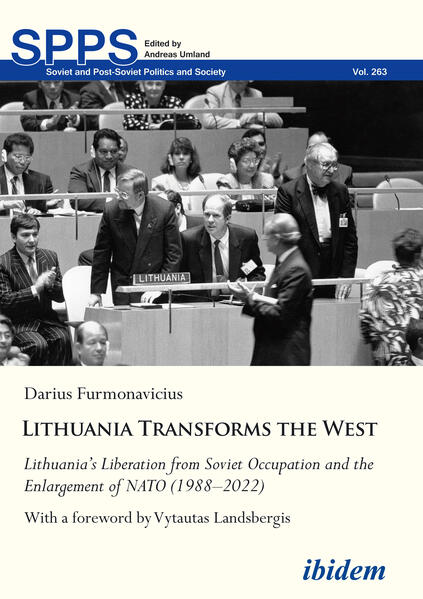Darius Furmonavicius' book offers an extremely useful and essentially pioneering interpretation of Lithuania's recovery of its national being and the enormous progress this small country has made in just over a decade since the nation regained its freedom . Anthony Packer (1940-2014), former Honorary Counsellor of Lithuania in Cardiff, UK
The collapse of the Soviet Union, with Lithuania playing a major role, was one of the redeeming events of the twentieth century, comparable to the defeat of Nazi Germany. Darius Furmonavicius provides a broad outline of Lithuanian history, with special attention to the period between March 11, 1990, when Lithuania proclaimed independence, and January 13, 1991, when the Soviet coup in Vilnius failed. A dangerous period because one incident, one wrong word, in Vilnius, or Washington, could have resulted in a bloodbath. For this period, Dr Darius Furmonavicius cites many sources, many of them difficult to find. He provides a very useful bibliography for students of this period. Ignas K. Skrupskelis, Professor of Philosophy, University of South Carolina
"In this detailed study of how newly liberated Lithuania strove to integrate itself into European and Transatlantic security structures, Darius Furmonavicius reveals the enduring importance of this strategic region, strikingly relevant to our own unsettled times. Vejas Gabriel Liulevicius, Professor of History, University of Tennessee
In his book, Darius Furmonavicius reminds us of the crucial role played by Lithuania in liberating itself from Soviet occupation and hastening the end of the Soviet Union. In describing Lithuania s subsequent integration into the European and Transatlantic Security Framework, he also highlights the strategic importance of the Baltic States for European security and stability. Darius Furmonavicius uses unique sources, including documents from the private collection of US Secretary of State James Baker, interviews with President Vytautas Landsbergis and Foreign Ministers of Lithuania Juozas Urbšys and Algirdas Saudargas. Patrick Salmon, Chief Historian, Foreign & Commonwealth Development Office, UK
"Die aktuelle Relevanz des Buches ergibt sich aus der verschlechterten Sicherheitslage in Europa. Wer den russischen Krieg gegen die Ukraine und seine Konsequenzen für das Baltikum besser verstehen möchte, dem sei das vorliegende Werk empfohlen." Alexandra M. Friede, sehepunkte Rezensionsjournal für die Geschichtswissenschaften














![Religion and Magic in Socialist and Postsocialist Contexts [Part I]. Historic and Ethnographic Case Studies of Orthodoxy, Heterodoxy, and Alternative Spirituality](/_next/image?url=https%3A%2F%2Fmedia2.hugendubel.de%2Fshop%2Fcoverscans%2F285%2F28554011_9783838209890_xl.jpg&w=3840&q=75)





















